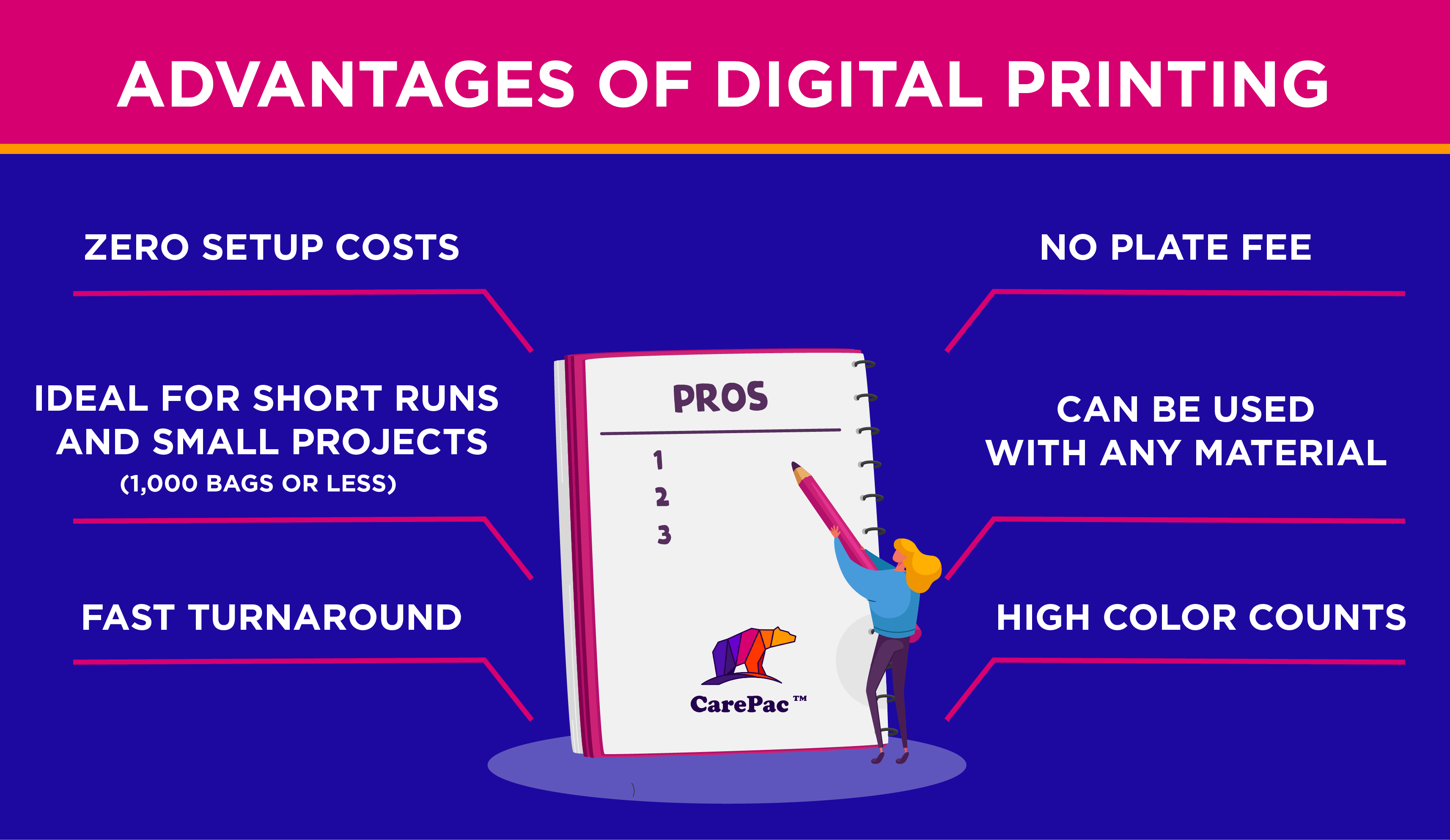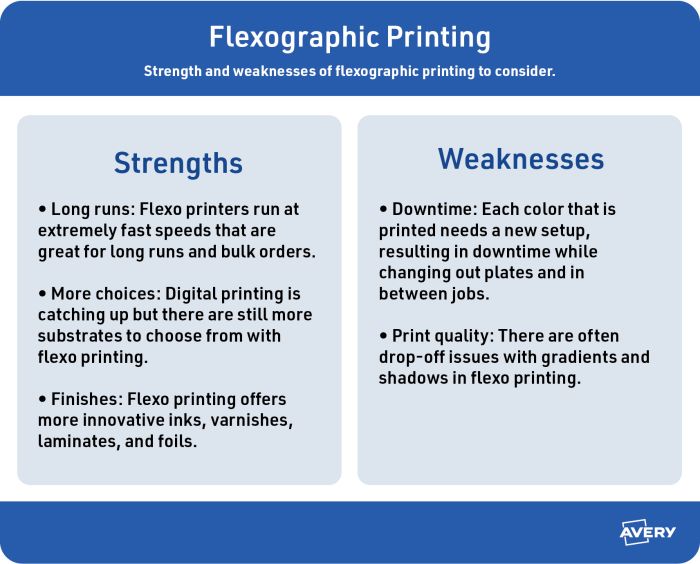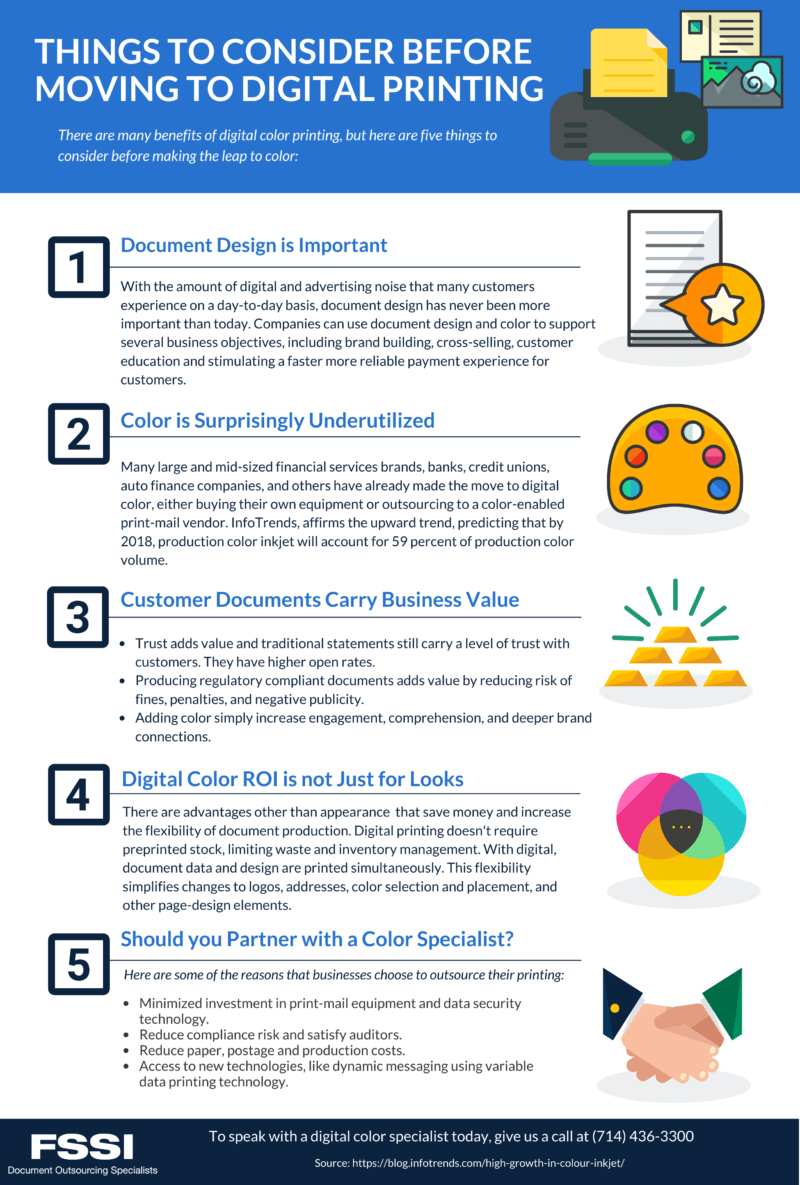Digital Printing - An Overview
Table of ContentsRumored Buzz on Digital PrintingNot known Incorrect Statements About Digital Printing 4 Simple Techniques For Digital PrintingSome Known Facts About Digital Printing.The Of Digital PrintingSome Ideas on Digital Printing You Should Know
Variable information printing, such as direct mail with individualized codes and addresses, is preferably suited for electronic printing. Digital fast printing only needs 4 steps of design, evaluation, printing and binding to get everything done. Digital fast printing has an exceptional advantage: print on demand.According to PMMI, digital printing enables brands and producers to react rapidly to consumer needs while improving the supply chain, minimizing warehousing price and waste, and enjoying faster time to market. That all noises excellent, yet how does this technology do all that? The major differentiator of these technologies is that there are no set-up costs and no plates with electronic printing.
The 9-Minute Rule for Digital Printing
This results in quicker turnaround time and decreases expense when using electronic printing.
Digital printing is very flexible, so it's very easy to make changes to the plan style quickly. It all goes back to the plates.
With traditional printing techniques, short-run printing is just not possible. Due to the fact that a fantastic design can make or break your item, digital printing constantly develops premium, clear and colorful graphics each time.
Digital printing is the procedure of printing digital-based images directly onto a variety of media substrates. There is no demand for a printing plate, unlike with countered printing. Digital files such as PDFs or desktop computer posting data can be sent directly to the digital printing machine to print theoretically, picture paper, canvas, fabric, synthetics, cardstock and various other substratums.
8 Simple Techniques For Digital Printing
According to PMMI, digital printing permits brand names and makers to react swiftly to client demands while enhancing the supply chain, decreasing warehousing expense and waste, and taking pleasure in faster time to market. That all noises excellent, however how does this technology do all that? The major differentiator of these technologies is that there are no set up costs and no plates with electronic printing.
According to Wikipedia, the best difference between electronic printing and typical techniques such as lithography, flexography, gravure, or letterpress is that there is no requirement to replace printing plates in electronic printing, read the full info here whereas in these analog printing techniques the plates are repeatedly changed. This leads to quicker turn-around time and decreases cost when utilizing electronic printing.

Digital Printing for Dummies
With standard printing methods, short-run printing is just not feasible. Because a fantastic design can make or damage your item, digital printing constantly creates top notch, clear and colorful graphics each time.

According to PMMI, digital printing enables brands and suppliers to respond promptly to customer demands while enhancing the supply chain, reducing warehousing expense and waste, and Recommended Reading enjoying faster time to market. That all sounds wonderful, but exactly how does this modern technology do all that? The major differentiator of these technologies is that there are no set up costs and no plates with electronic printing.
Digital Printing Things To Know Before You Get This
According to Wikipedia, the best distinction in between electronic read review printing and traditional methods such as lithography, flexography, gravure, or letterpress is that there is no demand to change printing plates in electronic printing, whereas in these analog printing approaches home plates are consistently changed. This results in quicker turnaround time and decreases cost when using electronic printing.
Speedy production implies getting your product to market faster. It also suggests it's easier and faster to make adjustments later, when you transform a dish, add a SKU, or produce seasonal packaging. Digital printing is very adaptable, so it's very easy to make changes to the package layout swiftly. Everything goes back to home plates.

A Biased View of Digital Printing
Digital printing is the process of printing digital-based images straight onto a range of media substrates. There is no demand for a printing plate, unlike with offset printing. Digital documents such as PDFs or desktop posting files can be sent out directly to the digital printing press to print theoretically, photo paper, canvas, textile, synthetics, cardstock and other substrates.
Comments on “The Greatest Guide To Digital Printing”